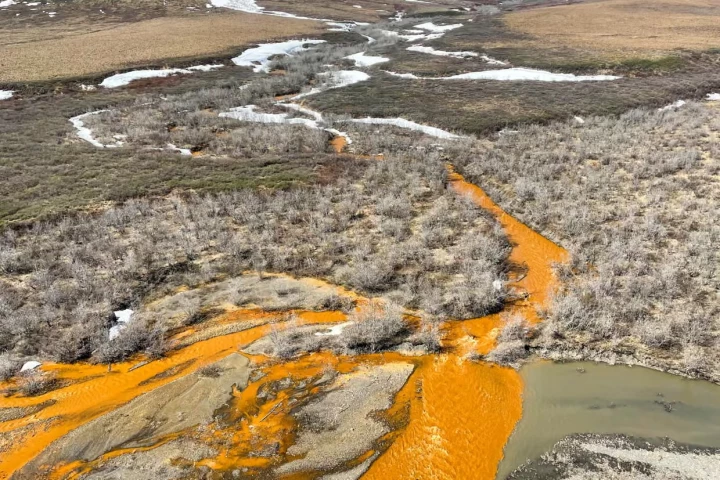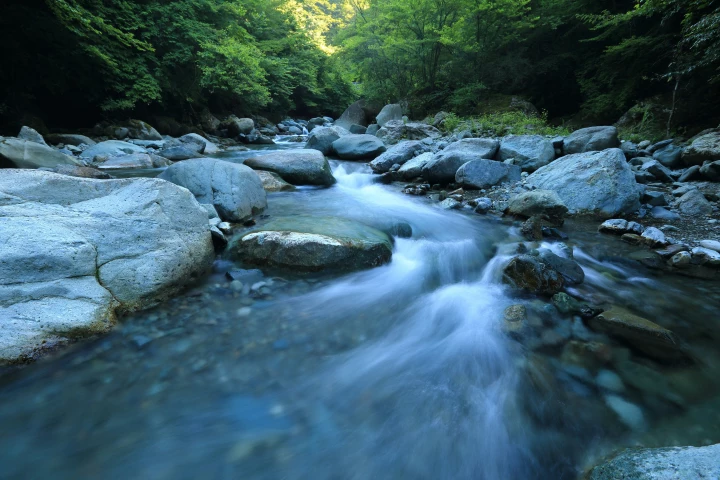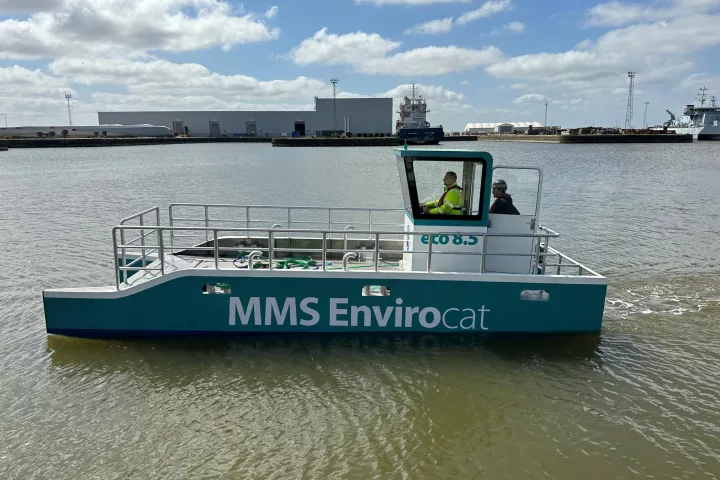River
-
New research flips a long-held belief that frozen environments slow down chemical reactions and helps explain why Arctic rivers are turning orange. It turns out that ice is actually better than liquid water at releasing iron from common minerals.
-
A study examining nearly 1,500 river sites in the US between 1980 and 2022 has shown that river heatwaves are happening up to four times faster than air heatwaves and lasting nearly twice as long. The finding has major implications for aquatic life.
-
Back in 2014, we heard about a so-called "salmon cannon" that safely shot spawning fish up over river-blocking obstacles such as dams. Its successor has since entered use, recently allowing herring to bypass a spillway for the first time in 80 years.
-
A technique originally developed to combat acid rain has the potential to pull an enormous amount of carbon dioxide out of the atmosphere – while helping to deacidify oceans, restore rivers and boost biodiversity and fish populations.
-
For the first time, scientists from across North America have formed a clear picture of Alaska's 'rusting' rivers and streams, tracking 75 areas in the remote Brooks Range that are flushed with the bizarre hue so bright it's even visible from space.
-
The ancient Egyptians may have had help building the pyramids after all – not from aliens but a long-lost river. Evidence of a previously uncharted branch of the Nile has been found snaking along the pyramids, suggesting blocks were floated to sites.
-
Though efforts to clean up plastic waste from our oceans are well underway, it's also vital to stem the tide at a major source of pollution: rivers. Researchers in South Korea are looking to doing just that at a "living lab" facility in Gongju.
-
UK shipyard MMS has added a new member to its fleet of floating-debris collection vessels. The latest Envirocat is the first to clean up waterways without releasing engine fumes into the environment.
-
The Ocean Cleanup has announced a second Indonesian river trash removal mission. The solar-powered Interceptor 020 will prevent around 1,000 tons of plastic waste flowing into the Java Sea each year from the Cisadane River.
-
Mussels and other mollusks usually aren't thought of as being all that active. Recently, however, scientists have documented a water-squirting behavior in just one species, which is apparently using the action to give its larvae a fighting chance.
-
Water level sensors serve an important purpose in rivers, warning of floods and unsafe recreational conditions. A new one is claimed to be not only more robust and reliable than others, but also considerably less expensive.
-
While hydroelectric dams are capable of generating a lot of electricity, they drastically disrupt the environment. Scientists have now proposed a simpler but still effective alternative, in which electric trucks replace such dams.
Load More











